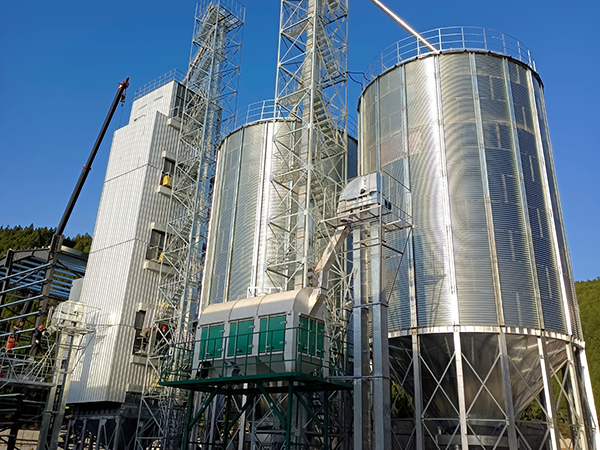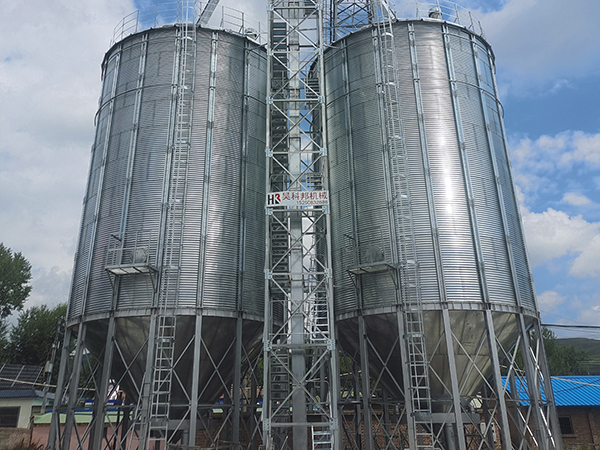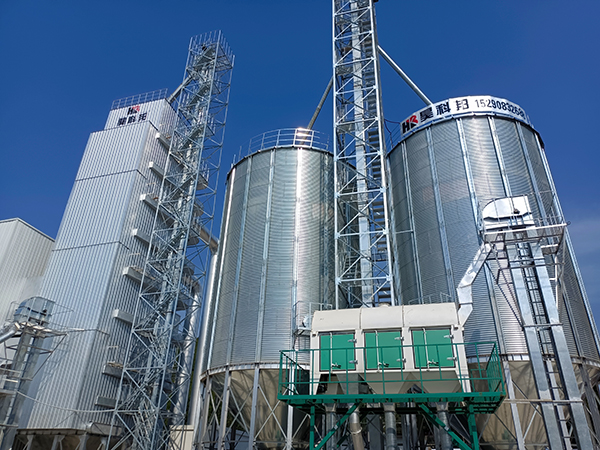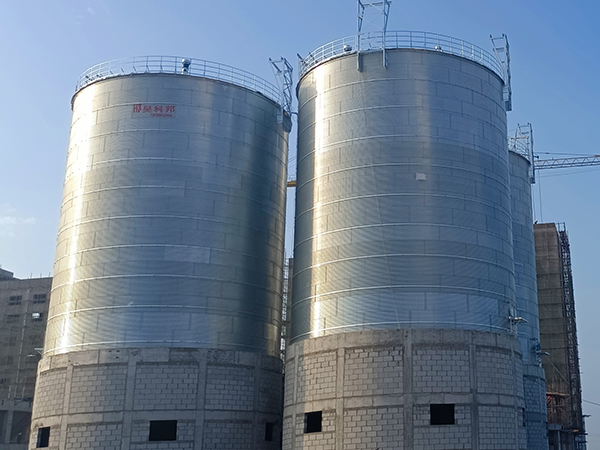Seed silo
Seed silo are structures specifically designed for the storage of seeds, primarily serving the agricultural production sector. Typically constructed from galvanized steel plates or concrete
Seed silo Introduction
Seed silo are structures specifically designed for the storage of seeds, primarily serving the agricultural production sector. Typically constructed from galvanized steel plates or concrete, seed silos may be equipped with advanced ventilation systems, temperature control systems, and humidity monitoring devices to ensure that seeds are maintained in an optimal storage environment during their preservation.
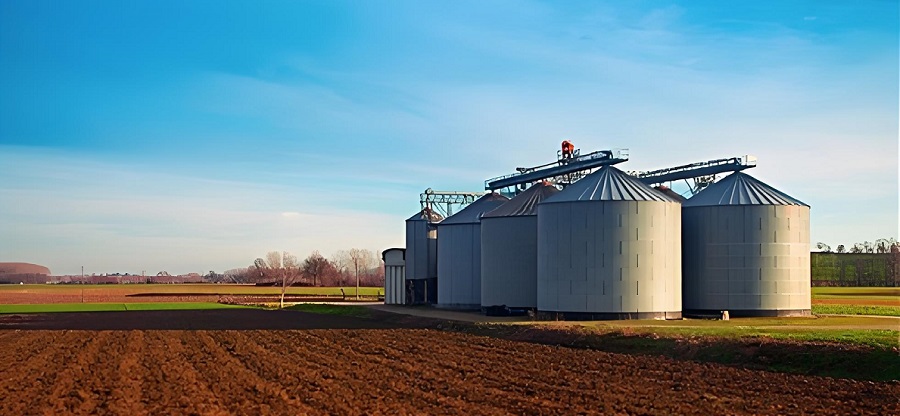
Seed Silo Features
Structural Stability
Seed silo are often constructed with reinforced concrete structures or steel plate welding, offering high strength and stability. They are capable of withstanding natural disasters and external environmental influences, ensuring the safety of the seeds stored inside.
High-capacity Storage
The compact design of silos allows for efficient use of space, making them suitable for large-scale seed storage and reducing land occupation, which facilitates centralized management.
Good Sealing
Seed silo have excellent gas and water tightness, enabling the regulation of internal air circulation and the control of temperature and humidity. This minimizes losses caused by excessive moisture or unsuitable temperature conditions.
High Level of Automation
Silos are typically equipped with automated loading, unloading, conveying, and testing equipment, such as vacuum grain loaders, belt conveyors, and bucket elevators, enabling rapid and damage-free movement of seeds in and out of storage.
Controllable Environment
Professional ventilation systems and temperature and humidity monitoring systems are in place, allowing for precise control according to the storage requirements of seeds, ensuring their viability and quality.
Fire and Corrosion Resistance
The materials and design of silos take into account fire prevention and corrosion resistance, extending their service life and reducing the risk of fire and other hazards.
Environmentally Friendly and Energy-saving
Through scientific design and optimized management, silos can also achieve energy conservation and emission reduction, aligning with the sustainable development requirements of modern agriculture.
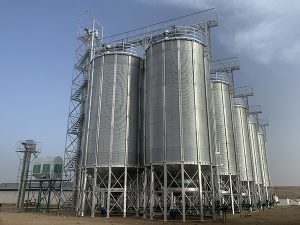
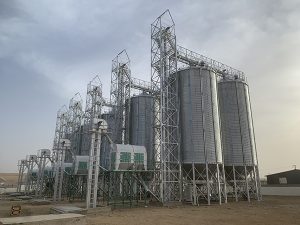
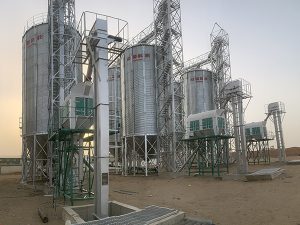
Seed Silo Structure
Silo Body
This is the central part of the seed silo, typically constructed in a cylindrical or square shape from reinforced concrete or metal materials (such as galvanized steel plates) to ensure structural strength and stability. The silo body is designed to accommodate a large volume of seeds and provides ample space for their proper storage.
Top Structure
The top structure of the silo is designed to prevent rainwater and pests from entering, and it may also include ventilation openings or equipment to regulate air circulation and control temperature and humidity within the silo.
Bottom Structure
The bottom structure of the silo contains the discharge outlets and related conveying equipment, such as screw conveyors or pneumatic conveying systems, for the loading and unloading of seeds.
Temperature and Humidity Control System
To maintain an optimal storage environment, the silo may be equipped with temperature and humidity control devices, such as heaters, coolers, and dehumidifiers.
Ventilation System
The ventilation system ensures air circulation within the silo through the placement of vents or the use of fans, reducing the risk of spoilage or odor development due to prolonged storage of seeds.
Loading and Unloading System
The loading and unloading system comprises equipment used to transfer seeds into and out of the silo, such as conveyor belts and elevators, to improve operational efficiency.
Monitoring and Automation System
Modern seed silos may be fitted with monitoring cameras, sensors, and automated control systems to monitor the conditions inside the silo in real-time and manage it automatically.
Safety Facilities
To ensure operational safety, the silo may include fire-fighting equipment, explosion-proof measures, and emergency alarm systems.
Cleaning System
Considering the hygiene requirements of seeds, the silo may be equipped with a cleaning system to periodically clean the interior of the silo and prevent contamination.
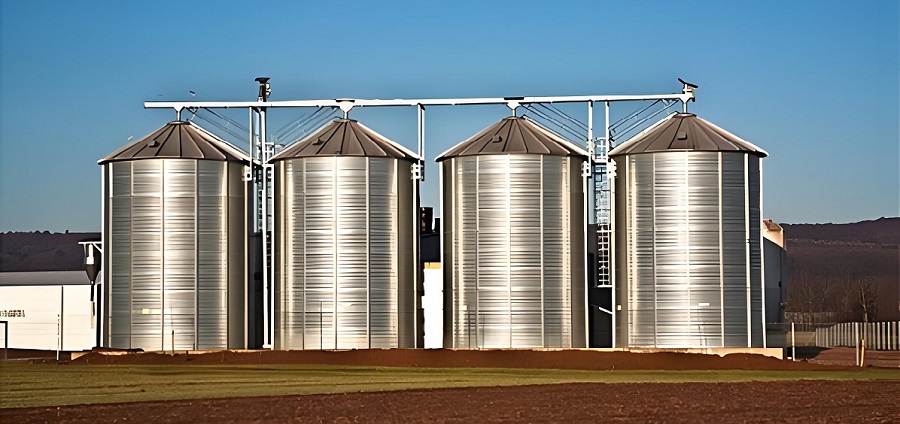
Seed Silo Advantages
Structural Design
Seed silo typically adopt cylindrical or square structures to maximize storage space and ensure structural stability. The materials used for the silo must be durable and have good sealing properties to prevent the ingress of moisture, pests, and other environmental factors that could affect the quality of the seeds.
Temperature and Humidity Control
Seed silo may be equipped with temperature and humidity control systems inside, which regulate the conditions within the silo to provide a suitable storage environment for seeds. The appropriate environmental conditions help extend the shelf life of seeds and maintain their germination capacity.
Ventilation System
Good ventilation is crucial for preventing seed spoilage and extending the storage period. The silo design usually includes vents or ventilation equipment to ensure air circulation within the silo, reducing odors or spoilage that may occur due to long-term storage.
Loading and Unloading System
To facilitate the entry and exit of seeds, silos are fitted with specialized loading and unloading systems, such as screw conveyors and pneumatic conveying systems. These devices ensure the rapid, efficient, and safe handling of seeds.
Cleanliness and Hygiene
The design of seed silo must consider the requirements for cleanliness and hygiene. The interior of the silo should be easy to clean to prevent contamination and the growth of pathogens, ensuring the sanitary safety of the seeds.
Automation and Monitoring
Modern seed silo may utilize automation technologies, including monitoring systems and control software, to track the storage status of the seeds and the environmental conditions of the silo in real-time, achieving intelligent management.
Safety Measures
The design of seed silo must also consider safety factors, such as fire prevention and explosion protection. Therefore, silos may be equipped with fire-fighting equipment, explosion-proof designs, and emergency measures for situations that require immediate response.
Application scope of Seed Silo
Coban Silo is widely used for grain storage such as wheat, corn, soybean, paddy, rice, soybean meal, barley, malt, sunflower seeds, rapeseed, peanuts, flour, and other powder materials, oat, special Silo, and seeds, etc.
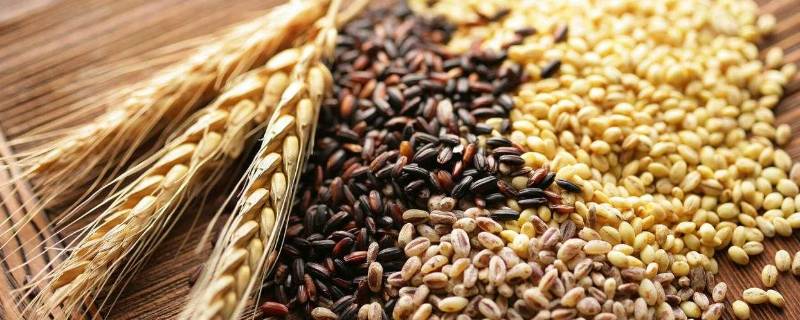
Seed Silo technical parameters
Scientifically speaking, the Silo capacity should be measured with volume (m3). Even in the same grain Silo, the storage tons will be different for different grains with different densities. The following table is calculated based on a Silo density of 0.75kg/m3, and surely HKB customizes Silo systems unique for you.
| Most Popular Hopper Bottom Steel Silo Technical Specifications | ||||||||
| Capacity | 50Ton | 100Ton | 150Ton | 200Ton | 300Ton | 500Ton | 1000Ton | 1500Ton |
| Model | TCZK
03605 |
TCZK
04507 |
TCZK
05507 |
TCZK
06406 |
TCZK
07307 |
TCZK
07313 |
TCZK
11010 |
TCZK
12811 |
| Diameter(m) | 3.667 | 4.584 | 5.500 | 6.417 | 7.334 | 7.334 | 11.000 | 12.834 |
| Total Height(m) | 9.56 | 12.53 | 13.25 | 12.85 | 14.70 | 21.42 | 20.95 | 23.51 |
| Volume(m³)
Density:0.75ton/m³ |
69 | 150 | 222 | 273 | 415 | 699 | 1346 | 2039 |
| Most Popular Flat Bottom Steel Silo Technical Specifications | ||||||||
| Capacity | 1000Ton | 1500Ton | 2000Ton | 2500Ton | 3000Ton | 5000Ton | 8000Ton | 10000Ton |
| Model | TCK
10014 |
TCK
11915 |
TCK
13715 |
TCK
15514 |
TCK
15518 |
TCK
18321 |
TCK
24718 |
TCK
25621 |
| Diameter(m) | 10.084 | 11.918 | 13.750 | 15.584 | 15.584 | 18.334 | 24.751 | 25.668 |
| Total Height(m) | 18.69 | 20.34 | 20.87 | 20.30 | 24.78 | 28.60 | 26.99 | 30.60 |
| Volume(m³)
Density: 0.75ton/m³ |
1335 | 2009 | 2701 | 2467 | 4145 | 6693 | 10879 | 13484 |

